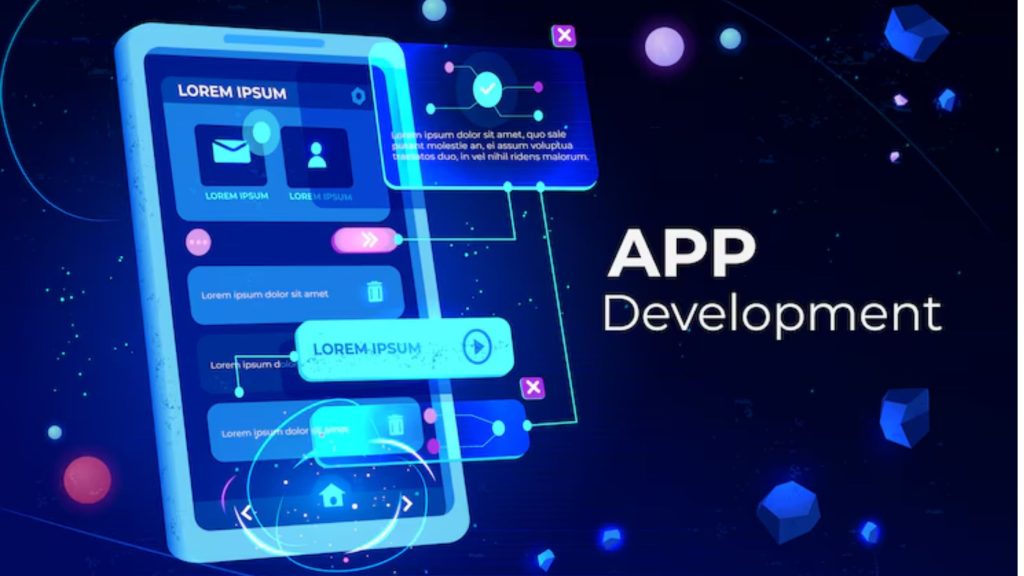Mobile app development has come a long way, evolving from simple utility applications to sophisticated, AI-powered solutions. With advancements in artificial intelligence (AI) and machine learning, mobile apps are becoming smarter, more intuitive, and highly efficient. The integration of AI in mobile app development is reshaping user experiences, improving app functionalities, and driving innovation across various industries.
Understanding AI and Machine Learning in Mobile App Development
What Are AI and Machine Learning?
Artificial intelligence (AI) refers to the simulation of human intelligence by machines, enabling them to perform tasks such as learning, reasoning, and problem-solving. Machine learning (ML), a subset of AI, focuses on algorithms that allow software to learn from data and improve performance over time without explicit programming.
How AI Differs from Traditional Programming
Traditional programming follows predefined rules and conditions, whereas AI-based app development uses data-driven learning models. This allows mobile apps to adapt, predict, and personalize user experiences dynamically, making them more intelligent and user-friendly.
Importance of Machine Learning in Apps
Machine learning enhances mobile applications by enabling features like automation, personalization, and predictive analytics. It helps apps deliver a tailored experience to users, optimizing interactions and making apps more engaging and efficient.
Key Ways AI and Machine Learning Are Transforming Mobile Apps
1. Personalized User Experience
AI plays a crucial role in enhancing user experience by analyzing user behavior and preferences. This enables apps to provide personalized recommendations, such as:
- AI-driven content suggestions in streaming services like Netflix and YouTube.
- Personalized shopping experiences in e-commerce apps like Amazon and Flipkart.
2. Voice and Conversational AI in Apps
Voice assistants and chatbots are transforming how users interact with mobile applications. AI-powered virtual assistants such as Siri, Google Assistant, and Alexa enable hands-free operation, making apps more accessible and efficient. Additionally, chatbots powered by natural language processing (NLP) enhance customer service in e-commerce, banking, and healthcare applications.
3. AI-Powered Image and Speech Recognition
AI in mobile app development has significantly improved security and accessibility through:
- Facial recognition technology used in authentication and security features.
- Speech-to-text applications that help users with disabilities access digital services effortlessly.
4. Predictive Analytics and Data-Driven Decision Making
AI-powered predictive analytics helps businesses understand user behavior and optimize app engagement. Some common applications include:
- Predictive text and autocorrect features in messaging apps.
- AI-driven content recommendations based on user browsing history.
5. Intelligent Automation and Smart Functionality
AI-based automation streamlines app performance by:
- Enhancing cybersecurity with AI-driven fraud detection systems.
- Automating customer support, reducing operational costs for businesses.
Benefits of AI in Mobile App Development
- Enhanced User Engagement: AI-driven features improve user interactions and retention rates.
- Improved Efficiency: AI automates repetitive tasks, allowing developers to focus on innovation.
- Cost-Effectiveness: AI reduces manual efforts, leading to lower development and maintenance costs.
- Higher Security Standards: AI-powered security features like biometric authentication and fraud detection ensure data safety.
Challenges in AI-Based Mobile App Development
Complexity of AI Model Integration
Developing and implementing AI models require expertise in machine learning algorithms, which can be challenging for developers.
Data Privacy and Ethical Concerns
AI-based applications collect vast amounts of user data, raising concerns about data security, privacy, and ethical AI practices.
Need for Continuous AI Model Training
AI models require regular updates and training to remain effective, making continuous improvement necessary for AI-driven mobile apps.
Future of AI and Machine Learning in Mobile App Development
Emerging Trends in AI-Based App Development
The future of AI in mobile app development will witness innovations like:
- AI-driven AR/VR experiences for gaming and e-commerce.
- AI-powered health monitoring apps that provide real-time health insights.
AI’s Role in Industry-Specific Applications
AI is driving growth across various sectors, including:
- Healthcare: AI-enabled diagnostic tools and virtual consultations.
- Finance: AI-powered chatbots for financial advisory and fraud detection.
- E-commerce: AI-driven personalization and smart search functionalities.
Conclusion
AI and machine learning are reshaping mobile app development, making applications smarter, more efficient, and user-friendly. From personalized recommendations to intelligent automation, AI-driven apps provide enhanced user experiences and improved business outcomes.
Looking to integrate AI into your mobile app in Bangalore? WebSenor specializes in AI-driven mobile app development, delivering intelligent, efficient, and future-ready solutions. Get in touch with WebSenor today to build cutting-edge mobile applications powered by AI.







